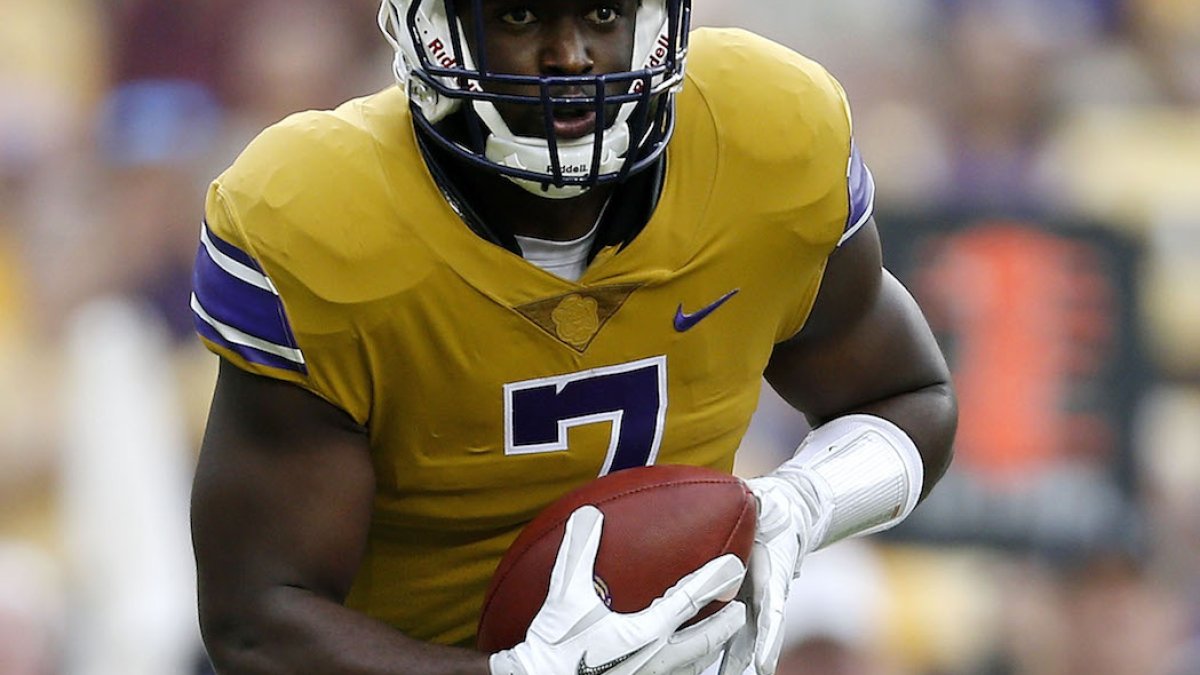School: LSU
Position fit: Running back
Stats to know: Led the nation in 2015 with 85 missed tackles forced.
What he does best:
- Powerful runner who hits the point of attack hard and will actively take on defenders.
- Excellent at keeping his feet churning through contact to continue gaining yards.
- Had the second-most yards gained after contact in 2015, behind only Alabama's Derrick Henry, and averaged more after contact per carry than Henry.
- At his best in 2015, Fournette was capable of stringing multiple moves together in order to better maximize his runs.
- Quick acceleration allows him to burst through holes and beat angles by safeties.
- Utilizes spin move and stiff arm well to make defenders miss and create separation.
- Ran a heavy amount of zone and pin-pull blocking schemes.
- Physical pass blocker who recorded a pass-blocking efficiency of 97 percent or higher in all three years, albeit on a small sample size.
Biggest concerns:
- Sometimes on zone runes, Fournette doesn’t press long enough, and can be too quick to cut back when the intended point of attack actually does open up.
- When LSU's blocking was poor in 2016, Fournette was unable to create on his own as often as he did in previous seasons, possibly due to an ankle injury.
- Limited experience as a receiver, with only 40 career receptions.
- Dropped 8 of 48 catchable targets in his career.
- Stayed in to pass block just 132 times in his career, less than 30 percent of passing plays.
- Physicality as a runner and blocker may cause concerns about his durability
Player comparison: Todd Gurley, Los Angeles Rams
Bottom line:
Like Gurley, Fournette has a size-speed blend that doesn’t come around often. He’s a powerful runner who consistently finishes runs through contact. His 2015 performance as a runner is the highest grade for a running back in the past three seasons of PFF grading. Fournette dealt with an ankle injury during the 2016 season, forcing him to miss multiple games. When Fournette was able to play, he was not nearly as effective of a runner as he was in his impressive sophomore campaign, outside of a train-wreck defensive performance by Ole Miss. As long as Fournette gets back to full health, it may actually end up benefitting him by preventing another 300-plus carry season. His blocking was considerably better in 2015, and when he was provided with clear paths this past year, he still rattled off long runs. But when his blocking and reads were murkier this past season, he was at times indecisive and quick to abandon the intended point of attack, and not nearly as effective at making defenders miss. Teammate Derrius Guice was considerably more productive running behind the same offensive line. The biggest question around Fournette may be whether the decrease in his effectiveness was solely due to injury, or if there are other aspects at play.
Exclusive content for premium subscribers

WANT TO KEEP READING?
Dominate Fantasy Football & Betting with AI-Powered Data & Tools Trusted By All 32 Teams
Already have a subscription? Log in



 © 2025 PFF - all rights reserved.
© 2025 PFF - all rights reserved.